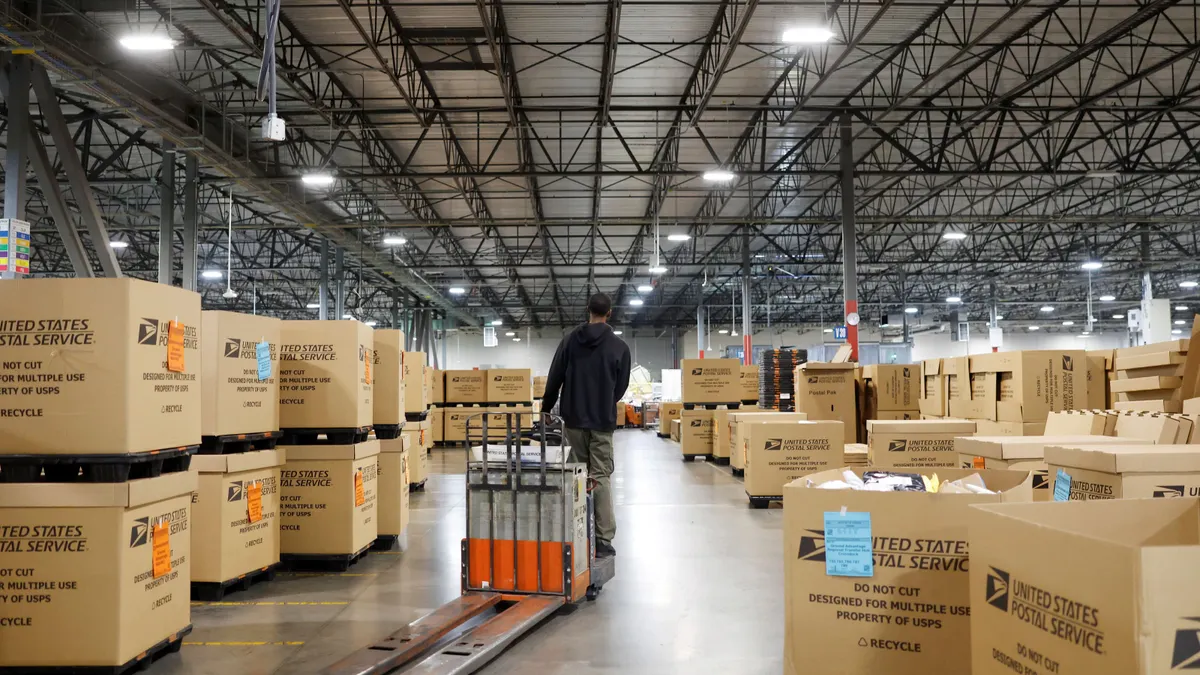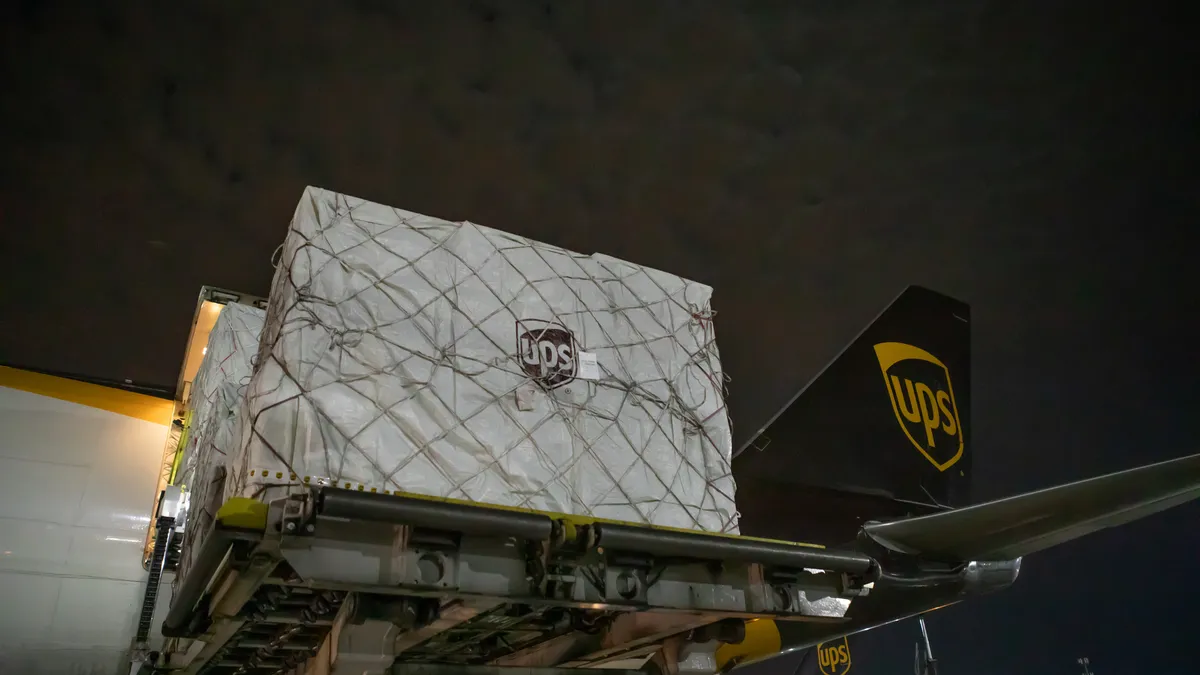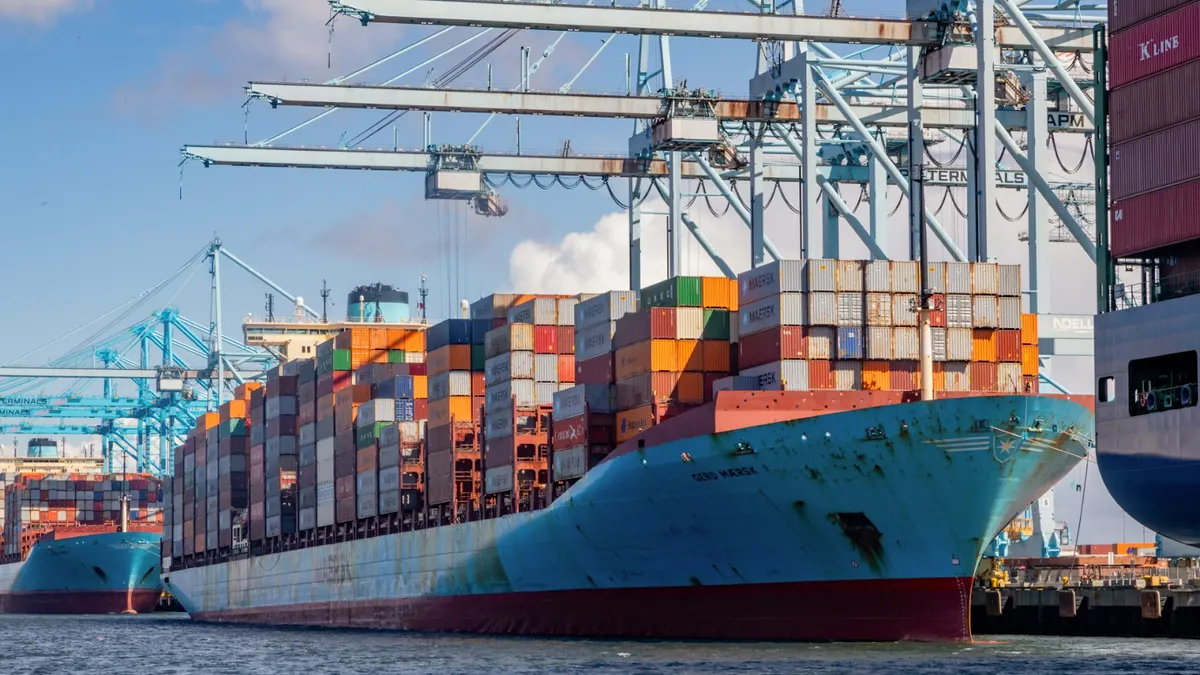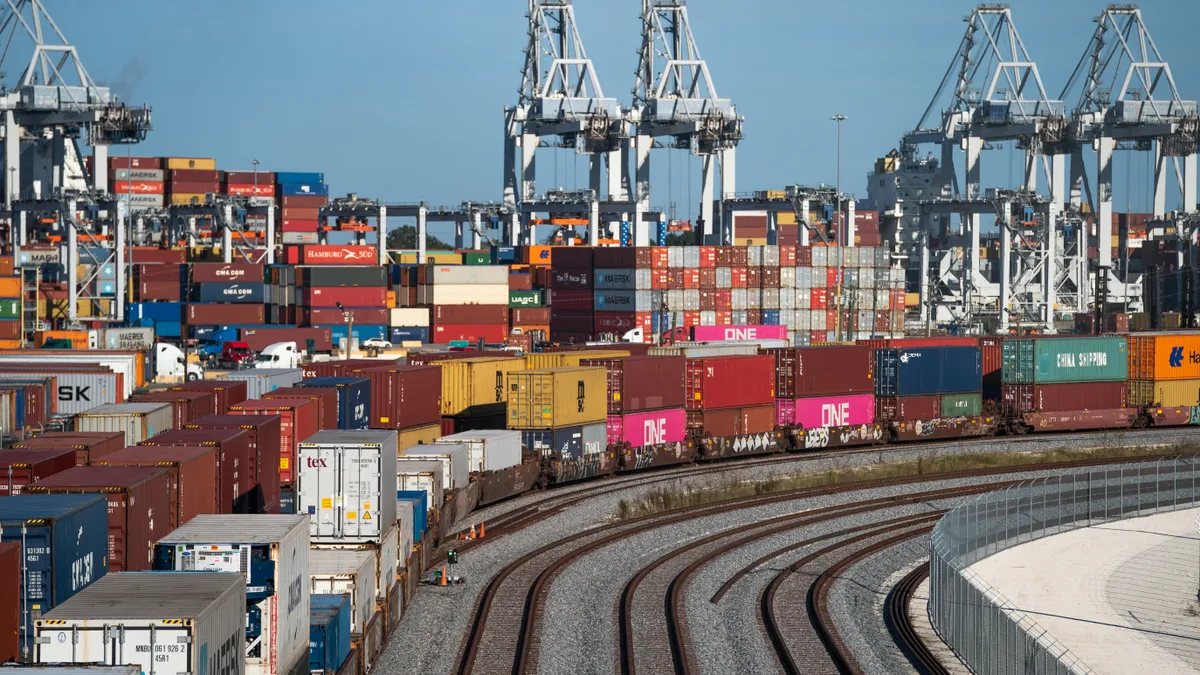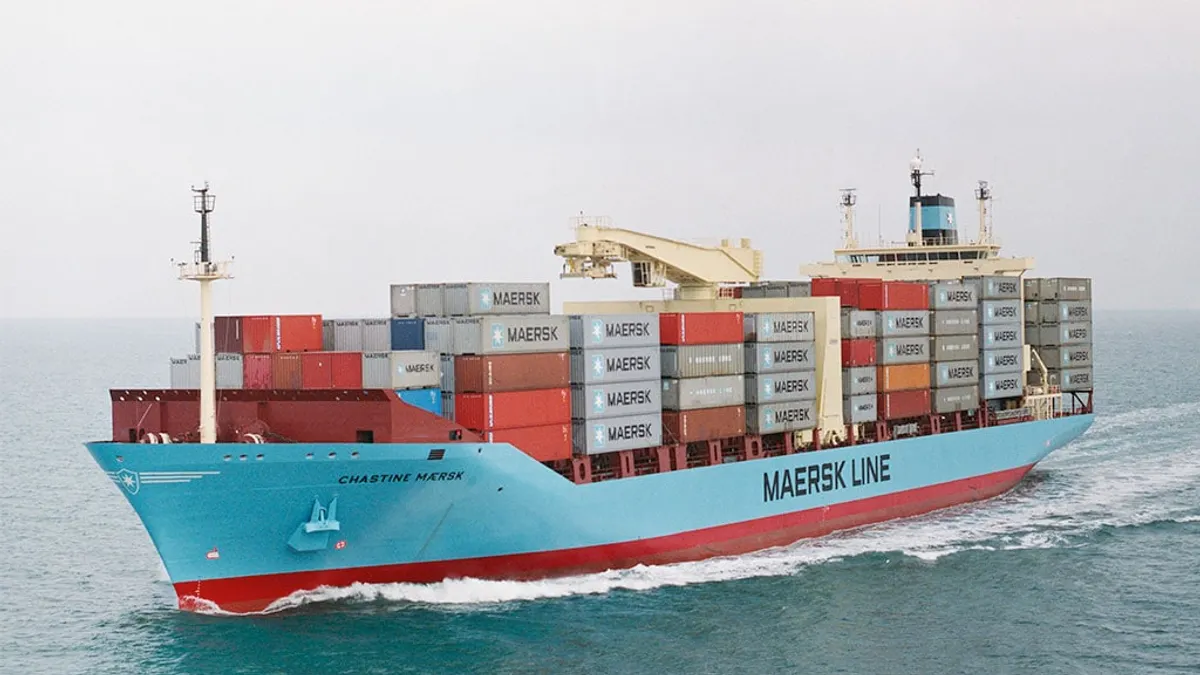Last week marked the 21st annual U.S. National Truck Driver Appreciation Week. With a different "National Something Week" every week, it’s easy to be cynical about this week of celebration, but some drivers aren’t.
"As a whole, we feel appreciated this week. You get that from the White House all the way to your local carriers. I think it’s a good week," Gary Mars, a fourth-generation driver who currently works for Walmart, told Supply Chain Dive.
A strong economy, tough work in often tough conditions, increasing regulation ... there are plenty of reasons why the trucking industry is still strapped for drivers. So perhaps its not surprising that Elisabeth Barna, chief operating officer and executive vice president of industry affairs at the American Trucking Associations, said 2018 may have been the biggest celebration she’s seen.
"More shippers are getting involved this year," Barna told Supply Chain Dive, describing offers of coffee, soda or hotdogs upon arrival. This year, she’s also heard reports that some shippers are handwriting thank you notes to driver and their families — thanking them for making the sacrifice of having mom or dad away from home.
It’s a meaningful gesture, said Barna, to make the drivers feel acknowledged for the crucial and tough nature of their work. "They don’t want to be treated like a number; they just want to be treated like a person," she said.
Snacks, T-shirts and sincere thank-you's were surely appreciated last week, but it’s the fundamentals that keep drivers behind the wheel according to drivers and those who hire them.
Just pay more, right?
The American Trucking Associations’ Driver Compensation Study, released earlier this year, revealed that the median salary for a truckload driver on a national route was $53,000 in 2017 — a $7,000 increase over the median annual salary in 2013. The gains were even greater for private fleet drivers, who saw their salary rise from $73,000 in 2013 to $86,000 last year.
"We’re now getting to the point where we’re starting to see wage growth. Five or six years ago, the rates were not very competitive," Jorge Salas, vice president of operations for dedicated fleet transportation solutions at DHL Supply Chain, told Supply Chain Dive.
What’s also driving up pay are new payment schemes where drivers are rewarded for safer driving, mile-per-gallon efficiency and the service they provide. Bonuses are also becoming more common, both in the form of signing bonuses for drivers, but also for drivers who bring in new recruits.
Salas said the struggle to find drivers is more challenging in some areas of the country than others. "In Denver, we’re seeing wage growth of 20% year over year because you can’t find people," he said.
So pay is rising, but trucking still has to compete with other jobs that can bring the same pay with very different working conditions. All of these efforts to raise driver pay, drivers and industry executives say, won’t be enough to solve the at least 50,000 driver gap if truck driving doesn't first become a better job.
Long hauls and school plays
Mars said what truck drivers want in terms of hours has changed significantly since he started driving 18 years ago.
"The industry as a whole has been changing for the last several years. People want more home time. They want more dedicated runs. Nobody really wants to live in a truck anymore," said Mars, who added that being able to promise to make it to a kid’s school play was unthinkable when he started driving. He said that he no longer wants to be away from his home in Arkansas for four weeks or more at a time and that goes double for drivers his son’s age. Mars’ son also drives a truck, though not for Walmart.
"That’s one of the biggest issues that we face now. The next generation of truck drivers doesn’t want to be in a truck all the time. I don’t know whether it’s a work ethic thing or the fact that people are changing. For the generation, prior to me, the short haul was two to three weeks out. Now I’m only gone a week at a time," said Mars.
Getting to sleep in his own bed as often as possible has superseded pay in Mars' priorities. And some companies are beginning to adapt to this common desire for more dependable home time within their own fleets. Local and regional fleets and newly designed routes are increasingly common as fleet managers work to recruit new drivers and hold onto the ones they have.
"A lot of the companies are doing relays where they take one trailer and meet another driving in a travel plaza and switch the trailer instead. Some of the larger companies have been doing this for a few years," said Barna.
A little common decency
The most elusive element that drivers are looking for is perhaps the hardest one to grant: respect in their day-to-day work. "Respect is a big thing for the drivers — to deliver the freight and be respected. To be able to use the restrooms at the company they are delivering to. Not to be detained for hours on end. It is treating them like they are an individual," said Barna.
"The next generation of truck drivers doesn’t want to be in a truck all the time."

Gary Mars
Indeed research bears out the importance of common decency in and outside of a truck driver’s company. The biggest factor in driver turnover is dissatisfaction with recruiters and dispatchers. Age and experience don't matter as much as effective communication, especially in the early stages of a driver's time with a company, according to a study by Stay Metrics.
Salas acknowledged that respect. Basic kindness and cordiality at pickups and drops for example, is hard to enforce and harder to encourage. He says it comes down to company culture.
Though internal culture at any given company doesn't guarantee that drivers will get the respect they deserve out in the world, DHL is working on the issue with an annual anonymous company survey that is delivered directly to the CEO. The survey has given Salas and other executives at DHL a better picture of where the company’s culture is today and how to improve it.
"A lot of drivers can’t work for somebody they can’t respect, and that comes down to company culture," said Barna.
Ultimately, it’s up to the employers to create an environment that young and old drivers want to be a part of — but getting a week of acknowledgment where the public, politicians and the industry recognizes the importance of trucking to everyday life in the U.S. certainly doesn’t hurt.







